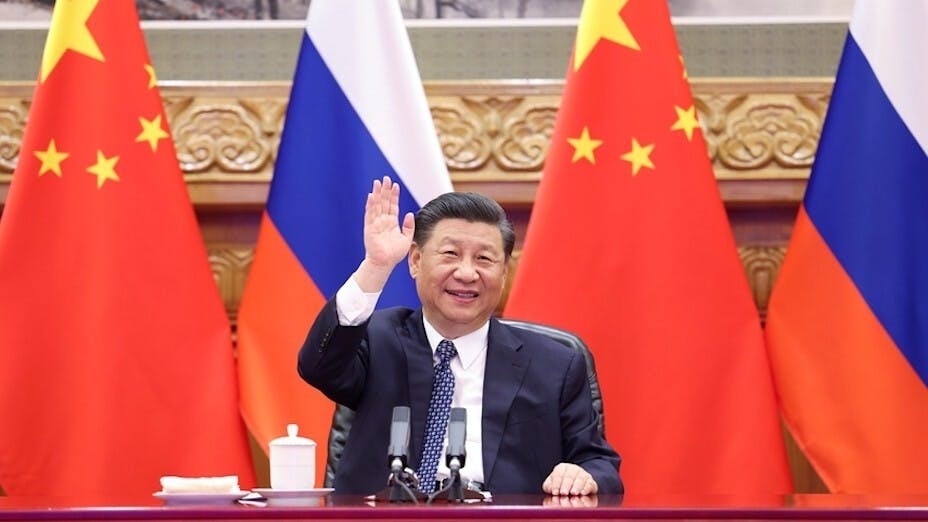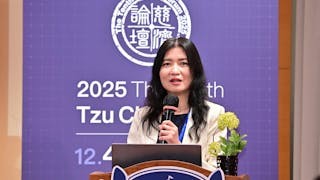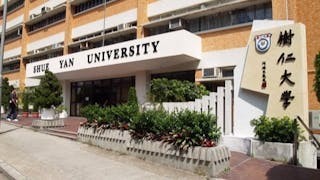本文主要談談近期兩個重要的講話──一個是中國外交部長王毅7月3日在清華大學舉行的第九屆世界和平論壇開幕式上發表題為「守護世界和平,推動人類進步」的主旨演講;另一次是國家主席習近平在北京以視頻方式出席亞太經合組織領導人非正式會議發表的講話,這兩次講話,顯示了中國推行多邊主義的綜合特色和新重點。
以合作消弭對抗,以共贏取代零和
王毅開宗明義指出,中國共産黨始終堅持和平發展──這是中國實行多邊主義的首要特徵。他提到中共總書記習近平7月1日的歷史性講話,強調中共關心「人類前途命運」。 王毅還強調,中國共產黨在促進世界和平的同時,永不稱霸、不搞擴張、不謀求勢力範圍。
王毅續指出,中國共產黨始終堅持公平正義,不懈推動人類「自由解放」,堅持國家不分大小、强弱、貧富一律平等。 最重要的是,王毅表示,中國不僅反對以強凌弱、強加於人,也反對干涉內政。
王毅又強調,一百年來,中國共產黨始终持堅合作共赢的原則,不懈促進各國共同發展;中國共產黨提出並堅持互利共贏的開放戰略,以合作消弭對抗,以共贏取代零和,以中國的新發展為世界提供新機遇。
他補充說,當今世界發生的種種對抗衝突和治理困境,源於「多邊主義的理念沒有得到有效維護」,因此,「維護並踐行真正的多邊主義,是解決當今世界錯綜複雜問題,有效應對各類傳統和非傳統安全挑戰的正確方向,是打破零和博弈,抵制單邊霸淩,真正實現持久和平與共同安全的必由之路」。
王毅又呼籲各國加緊構築抵禦病毒的「免疫長城」,秉持人類衛生健康共同體理念,超越政治歧見,毫無保留地開展國際抗疫合作。 同樣,在氣候變化問題上,中國正爭取在2060年之前實現碳中和。 王毅呼籲各國加強協調反恐和去極端化,但反恐和去極端化不能搞雙重標準,不能與特定國家、民族和宗教掛鈎。
掃除國際和平障礙,推動區域經濟一體化
今年是冷戰結束30年。王毅強調,冷戰沒有贏家,對立的世界將給人類帶來災難。因此,必須堅決抵制煽動對抗、製造分裂的行徑,必須徹底掃清影響國際地區和平安全的障礙。
王毅還闡述了北京對香港和台灣的立場,「今天的中國,早已不是一百年前的中國。」 他說:「任何人、任何勢力都不要低估中國人民捍衛國家主權、安全、發展利益的堅定意志和強大能力。」
國家主席習近平主席7月16日在APEC視頻會議上發表講話時,再次闡述了王毅的觀點。他還說,中國將在未來3年內,向發展中國家提供更多疫苗和經濟援助。
習近平強調,各國要推動貿易和投資自由化便利化,維護以世界貿易組織為核心的多邊貿易體制,「要拆牆而不要築牆」,他還強調推進區域經濟一體化等的重要性。
毫無疑問,中國領導人一直致力將中國的多邊主義推廣到世界各國,與不同的發達國家接觸,幫助發展中國家實現和平與可持續發展。
共建「一帶一路」發展,為世界提供新機遇
7月16日,習近平總書記在中央政治局常委王滬寧陪同下,到中央禮品文物管理中心參觀禮品展。展覽展出黨和國家領導人在外交活動中獲贈送給中國的禮品,習近平強調,黨和國家領導人外交活動禮品具有特殊的歷史價值和豐富的人文內涵,凝聚着中國人民同世界各國人民的深厚情誼,也見證着新中國外交事業的輝煌成就。
習近平表示,中國共產黨將推動建設新型國際關係,推動構建人類命運共同體,推動共建「一帶一路」高質量發展,以中國的新發展為世界提供新機遇。
展覽展出逾670件禮品、逾40 張照片,分為三個主題:「獨立自主 和平共處」、「開放合作 和平發展」,以及「大道同行 命運與共」。習近平的講話和展覽內容表明,中國正在採取大國外交,強調多邊主義,與世界各國和平發展。
綜上所述,從習近平和王毅的講話,以及外交禮品展覽,可以看出中國推行多邊主義的新特點。
如果中國在對外關係方面變得更加自信,那麼中國的多邊主義顯然有一個以中國共產黨主導、和平發展為特徵的新重點;中國國際關係中以公平正義、合作共贏;對全球公共衛生和可持續發展的追求;呼籲在國際衝突和爭端中尋求政治解決和對話;反對冷戰、反對干涉內政;堅持維護國家主權和安全;促進經濟自由化和區域經濟一體化;以及呼籲社會主義國家之間的團結。
所有這些特徵,或許都反映了崛起的中國「大國外交」的特色。
New Features of China’s Multilateralism
Two important speeches — one delivered by the Foreign Minister of the People’s Republic of China (PRC) Wang Yi on July 3 in the 9thWorld Peace Forum held at Tsinghua University and another delivered by President Xi Jinping during the video conference of the Asia-Pacific Economic Cooperation (APEC) on July 16 – revealed the comprehensive features and new emphases of Chinese multilateralism.
First and foremost, Wang began his speech by pointing to the peaceful development of the Communist Party of China (CPC) – the first feature of Chinese multilateralism. He referred to the historical speech made by CPC General Secretary Xi Jinping on July 1, emphasizing that the CPC is deeply concerned about the “destiny of the human mankind.” Wang Yi also stressed that the CPC does not seek hegemonism and expansion while promoting world peace.
Second, according to Wang, the CPC insists in the principles of fairness, justice, the promotion of “freedom and liberation” of the human being with equal treatment to all countries, regardless of whether their size is big or small, whether their power is strong or weak, and whether their wealth is poor or rich. Most importantly, Wang said that China is opposed to not only the foreign intervention in a country’s domestic affairs but also the utilization of might and power to exploit the weak states.
Third, the Chinese foreign minister emphasized that, in its 100 years of development, the CPC has been insisting on the principles of mutual cooperation, win-win situation and the open strategy of collaborating with other countries in the world. As such, China has been adopting the tenet of mutual collaboration to eliminate confrontations and to replace any zero-sum game with mutual benefits. Wang added that the tensions, conflicts and turbulence in the world are attributable to the zero-sum game mentality and unilateralism, which runs counter to the path of “permanent peace and mutual security” (Wen Wei Po, July 4, 2021, p. A14).
Fourth, Wang Yi appealed to all countries in the world to construct an “immunity Great Wall” by abandoning political biases, adopting the principle of protecting public health of the mankind, and pursuing the idea of treating vaccines as public goods to stop the spread of Covid-19 and its mutating viruses. Similarly, on climate change, China is striving for the achievement of carbon neutrality before 2060. Wang cautioned all countries in the world to deal with the non-conventional security threat of terrorism, extremism, and the triangular linkage between extremist actions, nationalities and religions. In fact, Wang’s points were reiterated by President Xi Jinping when the latter delivered his speech in the video conference of the APEC on July 16. President Xi added that China would provide more vaccines and economic aid to the developing countries in the coming three years.
Sixth, Wang stressed the need for domestic peace and stability through the quest for political solutions. Examples he gave include Afghanistan and Burma where domestic dialogue among contending groups is essential. On the question of Afghanistan, Wang appealed to the US to ensure stable and peaceful transition. On Burma, he said that China supports the Association of Southeast Asian Nations (ASEAN) to promote a “soft landing” approach in coping with domestic turbulence and that anti-Covid measures and economic aid should be provided. Regarding the relations between Palestine and Israel, Wang Yi said that both sides should resume dialogue and negotiations. On Iran’s nuclear development, Wang believed that the US should withdraw its unilateral sanctions. In short, the Chinese multilateralism is characterized by an emphasis on mutual dialogue and negotiations rather than resorting to confrontations.
Seventh, China opposes the Cold War approach of moving toward a dangerous tendency of splittist confrontations. Wang Yi said that a divided world is bound to bring about disasters to the mankind. As such, he appealed to countries in the world to resist confrontations among power blocs, strong power politics and external interventions in the domestic affairs of various countries.
Eighth, Wang elaborated on the PRC’s position toward Hong Kong and Taiwan by saying that China is no longer the weak country over 100 years ago. He said: “Any person and any force cannot underestimate the resolute determination and strong capability of the Chinese people to protect national sovereignty, national security and developmental interest.”
Ninth, President Xi Jinping on July 16 emphasized that countries in the world should promote trade, investment and economic liberalization rather than building up a wall to protect themselves. He also stressed the importance of economic integration, globalization, openness, tolerance and balanced development.
Tenth, the Marxism Study Center of the Chinese Academy of Social Sciences (CASS) on July 3 published a Yellow Paper on the “international common destiny,” saying that socialist countries in the world showed their excellence in the process of dealing with global turbulence and the spread of Covid-19. Most significantly, the CPC’s centralized leadership is pivotal in socialist China’s response to global turbulence, while the socialist states in the world should resist the so-called “democratic alliance” led by Western countries. Hence, underlying the Chinese multilateralism is a strong tone of rallying the socialist world to resist the “encroachment” of the Western “democratic alliance.”
The key elements of Chinese multilateralism could also be identified on July 6, when President Xi Jinping held a virtual conference with the French President Emmanuel Macron and the German Chancellor Angela Merkel. He told the French and German leaders that, firstly, the CPC insisted in the principles of maintaining peace, development, fairness, justice, democracy and the freedom of human mankind to cooperate with Europe. Secondly, Chinese multilateralism is to be maintained and strengthened. Thirdly, China is keen to expand the mutually beneficial relations with France and Germany. Finally, the construction of stability and balanced development is the “great power” relationship adopted by the PRC. According to President Xi, China welcomes France and Germany to develop Africa further.
Clearly, the PRC leaders have been assertively expanding the Chinese multilateralism to all countries in the world, engaging different developed countries and helping the developing states to achieve peace and sustainable development.
On July 16, when President Xi was accompanied by Politburo Standing Committee member Wang Huning to visit the Central Gifts and Cultural Center, which exhibited all the gifts given to China during the CPC and national leaders’ foreign visits, he stressed that all these gifts contained tremendous historical value and rich content. The reason is that the Chinese people have established close and profound emotional bonds with the peoples in different countries. These gifts also symbolized the efforts made by the CPC to strive for the progress of mankind. The CPC, according to the President, will continue to construct new international relations, promote the “common destiny for the mankind” and utilize the Belt and Road initiatives to develop high-quality development of the world. The center’s exhibition showed 670 items of gifts, 40 photographs and 100 artifacts and documents. The exhibition was divided into three themes: “independence, autonomy, peaceful coexistence;” “open cooperation and peaceful development;” and “common path and common destiny.” The remarks of President Xi and the content of the exhibition demonstrated that China is now adopting a great power diplomacy, emphasizing multilateralism and the peaceful development with all countries in the world.
In conclusion, the new features of Chinese multilateralism can be identified from the remarks of President Xi Jinping, Foreign Minister Wang Yi and the significant exhibition of China’s diplomatic relations and gifts received from various countries. If China is becoming far more self-confident in its foreign relations, the Chinese multilateralism is clearly a new emphasis characterized by the CPC-led peaceful development; fairness and justice in China’s international relations; win-win cooperation; the quest for global public health and sustainable development; the call for political solutions and dialogue in international conflicts and disputes; the resistance to confrontation and opposition to foreign intervention in domestic affairs; the insistence in the protection of national sovereignty and security; the promotion of economic liberalization and integration; and the call for solidarity among the socialist states. All these characteristics are perhaps a mirror of China’s rise and its “great power” diplomacy.
原刊於澳門新聞通訊社(MNA)網站,本社獲作者授權轉載。














































